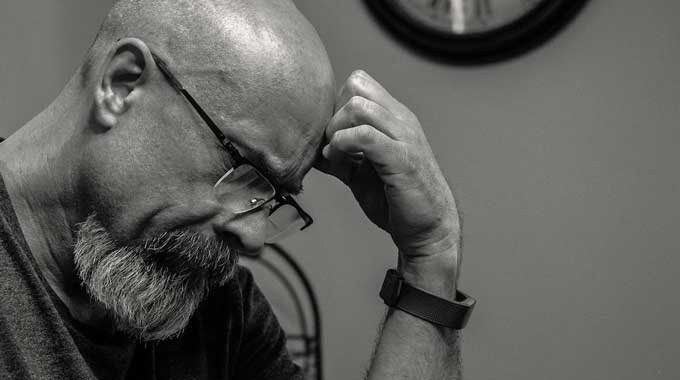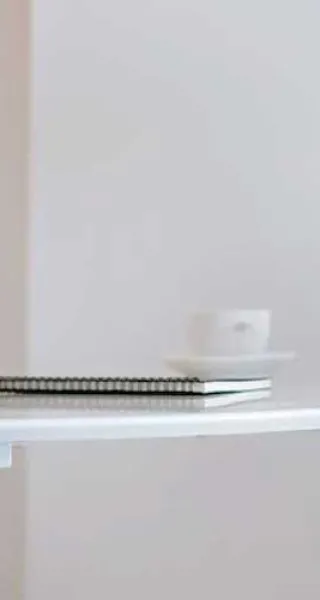Living with OCD without effective support is really hard. The good news is, there are lots of treatments available proven to help people with OCD to manage symptoms and live fulfilling and productive lives.
This blog offers useful information about the condition and explores the different options available.
What Is Obsessive-Compulsive Disorder?
Obsessive-compulsive disorder (OCD) is a mental health condition characterized by intrusive, obsessive thoughts accompanied by repetitive, compulsive behaviors. An estimated 1.2% of adults in the United States live with OCD. Without support, obsessive-compulsive disorder can significantly affect a person's daily life, causing emotional distress and preventing them from fulfilling their potential.
What Are Obsessions?
Obsessions are unwanted, intrusive thoughts, images, worries, or urges that come to your mind. Obsessive thoughts can make you feel mentally uncomfortable or anxious and affect your ability to enjoy day-to-day life.
Some examples of obsessive thoughts are:
- worrying that you have or you may harm someone
- violent intrusive thoughts of you harming someone
- sexually intrusive thoughts
- fears of contamination or germs
- fears that something bad will happen if things are not "right"
Some people worry about sharing their obsessions with others or feel like they are hiding something. You may also feel embarrassed or upset that you have such thoughts.
However, it's important to remember that your obsessions are not a reflection of your character, self, or what you think, want, and believe. Professional support can help you to manage obsessions in a healthy way and learn to live a content and fulfilling life.
What Are Compulsions?
Compulsions are mental or physical behaviors that you do to alleviate some of the anxiety caused by obsessive thoughts. However, while compulsive behavior may offer immediate relief from the obsession, the obsession soon returns, sometimes in a more intense form than before.
Some examples of compulsive rituals include:
- repeatedly checking that you have locked a door
- mentally replaying your route to work to check you weren't in an accident
- counting
- repeating phrases in your head
- repeatedly asking people to reassure you that you are okay
- frequently washing your hands, face, or body

How Do OCD Symptoms Affect Your Life?
OCD symptoms can affect your life in a variety of ways. For people living with OCD, the condition usually has a significant impact on their everyday reality. For example:
- Compulsions can take up a lot of time, preventing you from getting things done
- Obsessions can prevent you from trusting those close to you, affecting your relationships
- Obsessive-compulsive symptoms can make you feel isolated, lonely, misunderstood, and ashamed
Many people with OCD do not receive the help that they need. If you think you may be living with undiagnosed OCD, you can speak to a mental health professional about how you can manage symptoms and make daily life easier.
How Is OCD Treated?
Living with OCD can be really tough. The good news is most people who access the proper treatment see a big improvement in their symptoms.
There are currently several evidence-based treatment options for obsessive-compulsive disorder, proven to help individuals manage the condition. These include talk therapies, medication, and transcranial magnetic stimulation therapy (TMS).
Every individual is different and it can take some time to find the right treatment for you. Often, people benefit most from a combination of different treatments, such as therapy and medication or TMS.
People with mild OCD may only need a short course of therapy to learn to manage their condition. Those with severe OCD might require a longer course alongside other treatments.
What Types of Therapy Treat OCD?
Some of the most common types of talk therapy for OCD are cognitive-behavioral therapy, exposure and response prevention therapy, commitment therapy, and cognitive therapy.
Cognitive-Behavioral Therapy
Cognitive-behavioral therapy (CBT) is an evidence-based treatment that focuses on the interaction between our thought and behaviors. CBT supports individuals to identify unhelpful thought and behavioral patterns and turn them into more positive ones. Therapy sessions focus on the present, helping clients make meaningful changes in real-time and develop useful and lasting skills.
During CBT sessions for obsessive-compulsive disorder, you may explore and develop healthy coping mechanisms that offer lasting relief from obsessions. CBT may also involve exposure therapy, where you are exposed to worry or fear in small amounts so you can learn to manage the anxiety that the stimulus brings.
Exposure and Response Prevention
Exposure and response prevention therapy (ERP) was designed by medics and scientists as an OCD treatment. During ERP therapy sessions, you work with a therapist to learn to confront your obsessions without engaging in compulsions.
Your therapist may deliberately put you in a situation where you feel anxious and would normally engage in compulsive behavior. They will encourage you to resist the compulsion and try to tolerate the anxiety instead. After a while, you will see that the mental discomfort you experience goes away on its own, without the need for compulsive behaviors.
How Can Medication Treat Obsessive-Compulsive Disorder?
Some people find that taking anti-depressant medication can help relieve symptoms of OCD. Some evidence suggests that people with OCD have unbalanced levels of serotonin in the brain (although it is unclear whether this is a cause or effect of the disorder). Taking anti-depressants may help to correct this unbalance, improving OCD symptoms.
There are three main types of anti-depressant medications:
- selective serotonin reuptake inhibitors
- selective norepinephrine reuptake inhibitors
- or Clomipramine, a tricyclic antidepressant
As with all psychiatric drugs, it's essential that you speak with a doctor before taking serotonin reuptake inhibitors or any other medications prescribed for OCD and always follow your prescription.

Transcranial Magnetic Stimulation (TMS) Therapy for Obsessive-Compulsive Disorder
While talk therapy is very effective for many people with OCD, it may not work for everyone, particularly if you have more severe OCD. People with treatment-resistant OCD, or those who want to avoid the side effects of SRI medication, may benefit from alternative treatments, such as transcranial magnetic stimulation therapy (TMS).
TMS is an innovative, non-invasive brain stimulation therapy that uses gentle magnetic fields to stimulate nerve cells in certain brain regions. In 2018, TMS received FDA approval as a safe and effective treatment for the condition. TMS doesn't require surgery or anesthetic and has few side effects, the most common being temporary mild headaches and scalp discomfort.
TMS is an outpatient procedure that usually involves twice-daily, daily, or bi-daily sessions of 20-40 minutes over 6-9 weeks. You can participate in TMS as part of an outpatient, intensive outpatient, or residential treatment program. More intensive treatment programs are usually suitable for clients with more severe OCD who are receiving a variety of treatment types or require more constant care and supervision.
Other Brain Stimulation Therapies:
As well as TMS therapy, there are some other brain stimulation therapies that may benefit treatment-resistant patients with OCD and other anxiety disorders. These include:
- electroconvulsive therapy
- deep brain stimulation
If you're considering brain stimulation therapies for obsessive-compulsive disorder, you can speak to a mental health professional for expert advice on the different options available.
What Are Some Common Mental Disorders that Co-Occur with OCD?
Some people with obsessive-compulsive disorder also have another co-occurring mental health condition. Some mental health disorders that can co-occur with OCD include:
- eating disorders
- other anxiety disorders
- substance-use disorders
Co-morbidity can complicate the treatment process and make treating OCD more difficult. However, individualized and comprehensive treatment plans can effectively treat co-occurring mental health conditions, addressing both disorders simultaneously to promote holistic healing.

Pioneering Mental Health Treatment At GIA Miami
GIA Miami is a state-of-the-art treatment facility in downtown Miami that specializes in TMS therapy. We compassionately apply the latest advances in medical science to our individualized treatment plans, helping every client to reach their recovery goals.
We understand that many of our clients have busy schedules, offering accessible outpatient treatment and telehealth to fit your unique needs. Our facilities are modern, open, and comfortable, giving clients the mental space they need to fully engage in treatment.
If you're living with OCD, another mental health condition, or looking to improve your mental performance, contact GIA Miami today. We're here to help you become the best version of yourself.

